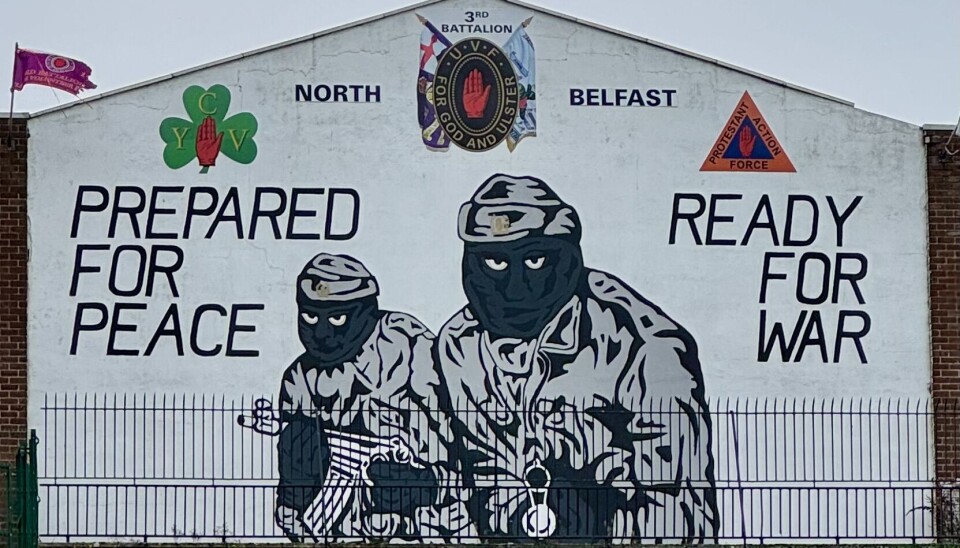Researchers' Zone:

Sally Rooney, Kneecap, and the fine line between activism and support for terrorism in Denmark
Why Irish voices like Sally Rooney and Kneecap are leading the conversation on Palestine
Both Irish Novelist Sally Rooney and Irish hip hop group Kneecap have faced global media scrutiny recently due to their very public support for Palestine.
Rooney, best known for Normal People and her recent novel Intermezzo, announced she would donate profits from her UK book sales and BBC TV adaptation to Palestine Action – a British direct-action group recently designated a terrorist organisation by the UK government. In response, some UK politicians have suggested she could face arrest under terrorism legislation.
Kneecap, meanwhile, have cancelled their US tour and been barred from performing in parts of Europe. This comes after their frontman, Mo Chara, was charged in the UK for allegedly waving a Hezbollah flag during a concert in London last year. The group have called the charge “political policing” aimed at silencing their outspokenness on the war in Gaza.
Both artists are now facing political backlash where I live in Denmark, which, like the UK, has taken a particularly hard stance on “support for terror”. Indeed, since the Hamas attack on Israel on 7 October 2023 it is a criminal offence to publicly support banned groups - this includes posting on Facebook and message boards.
Rooney’s recent appearance at the Louisiana Literature Festival near Copenhagen was marked by this controversy. Some politicians challenged whether she should have been given such a prominent platform, given her public support for a group on Britain’s terror list.
At the event, Rooney defended her stance, reiterating her view – outlined in The Guardian and The Irish Times – that violating property law is not equivalent to terrorism. (Palestine Action protesters sprayed red paint into two plane engines at a military airbase in the UK).
Kneecap, meanwhile, are scheduled to perform in Copenhagen this week. Their appearance at the city’s Vega music venue has sparked protest, with Jakob Næsager, the Mayor for Children and Youth, calling for the venue’s management to be fired.
“Support for terror”?
This backlash stems in part from Denmark’s drive to prioritise more “support for terror” cases. The Prime Minister, Mette Frederiksen, has instructed public prosecutors to pursue charges against individuals who publicly justify the October 7 attacks or praise Hamas.
More than 150 indictments have been issued so far. The few cases where trials have concluded seem legally unconvincing. Indeed, legal experts in Denmark have raised concerns, arguing that the government is inappropriately pressuring prosecutors. Only about half of the dozen or so trials have resulted in convictions, causing prosecutors to question whether they should continue to pursue these cases.
Rooney’s Danish publisher, Jacob Søndergaard, tried to bridge both sides of the debate. On the one hand, he insisted Rooney “is exercising her freedom of speech, and we support her”. On the other hand, he asserted that her donations to Palestine Action would only come from her UK earnings, not her Danish book sales – as if such a distinction is possible. He further noted:
“Palestine Action is not banned in Denmark, so we comply with Danish legislation. But it is clear that if the group one day appears on the Danish terror list, we will of course have to take an even more stringent approach to the situation.”
The Irish take
For Irish figures like Rooney and Kneecap, solidarity with Palestine is informed by their own national memory of resistance, colonisation, and eventual political negotiation.
Ireland’s own history of occupation eventually led to an independent Irish state and the island’s partition. Indeed, the 1998 Good Friday Agreement ended decades of armed conflict by bringing together former enemies.
This included armed groups once deemed terrorist organisations. With Sinn Féin, previously the political wing of the Irish Republican Army, now sitting in government north and south of the border.

Durable peace relies on open dialogue rather than criminalising political opposition. Across Europe, the space for such discussion is narrowing. In the wake of the October 7 attacks, governments have responded with bans on Palestinian flags, arrests at protests, and censorship of activists and artists.
What’s being tested isn’t just the legal definition of terrorism but whether cultural and political dissent can still be tolerated in liberal democracies.
Ireland’s history offers a different lens where speech, even if uncomfortable or radical, is part of the path to peace. As European governments expand the scope of what counts as "support for terror”, the question remains: are we criminalising the very kinds of political expression that lead to understanding – and eventually, resolution?




